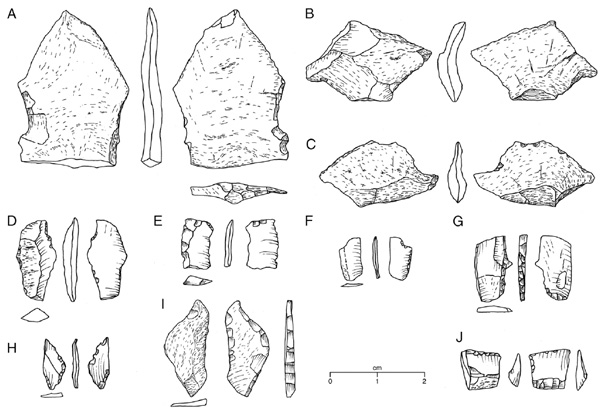Again nurture (environment) seems to be much more important than nature (genetics) in what regards to human intelligence.
A new study show that not just the mere fact of breastfeeding but the duration of natural motherly nutrition (and maybe the emotional elements attached to it) is strongly correlated with IQ (but not memory and learning).
Mandy B. Belfort et al., Infant Feeding and Childhood Cognition at Ages 3 and 7 YearsEffects of Breastfeeding Duration and Exclusivity. JAMA Pediatrics 2013. Pay per view → LINK [doi:10.1001/jamapediatrics.2013.455]
Abstract
Importance Breastfeeding may benefit child cognitive development, but few studies have quantified breastfeeding duration or exclusivity, nor has any study to date examined the role of maternal diet during lactation on child cognition.
Objectives To examine relationships of breastfeeding duration and exclusivity with child cognition at ages 3 and 7 years and to evaluate the extent to which maternal fish intake during lactation modifies associations of infant feeding with later cognition.
Design, Setting, and Participants Prospective cohort study (Project Viva), a US prebirth cohort that enrolled mothers from April 22, 1999, to July 31, 2002, and followed up children to age 7 years, including 1312 Project Viva mothers and children.
Main Exposure Duration of any breastfeeding to age 12 months.
Main Outcomes and Measures Child receptive language assessed with the Peabody Picture Vocabulary Test at age 3 years, Wide Range Assessment of Visual Motor Abilities at ages 3 and 7 years, and Kaufman Brief Intelligence Test and Wide Range Assessment of Memory and Learning at age 7 years.
Results Adjusting for sociodemographics, maternal intelligence, and home environment in linear regression, longer breastfeeding duration was associated with higher Peabody Picture Vocabulary Test score at age 3 years (0.21; 95% CI, 0.03-0.38 points per month breastfed) and with higher intelligence on the Kaufman Brief Intelligence Test at age 7 years (0.35; 0.16-0.53 verbal points per month breastfed; and 0.29; 0.05-0.54 nonverbal points per month breastfed). Breastfeeding duration was not associated with Wide Range Assessment of Memory and Learning scores. Beneficial effects of breastfeeding on the Wide Range Assessment of Visual Motor Abilities at age 3 years seemed greater for women who consumed 2 or more servings of fish per week (0.24; 0.00-0.47 points per month breastfed) compared with less than 2 servings of fish per week (−0.01; −0.22 to 0.20 points per month breastfed) (P = .16 for interaction).
Conclusions and Relevance Our results support a causal relationship of breastfeeding duration with receptive language and verbal and nonverbal intelligence later in life.
Related is also:
Dimitri A. Kristakis, Breastfeeding and CognitionCan IQ Tip the Scale? JAMA Pediatrics 2013. Pay per view → LINK [doi:10.1001/jamapediatrics.2013.470]
Extract
In the developed world, where the benefits of breastfeeding are not measured in terms of life or death or even serious morbidity, the question has been what benefits might motivate mothers to both initiate and sustain it consistent with the World Health Organization and American Academy of Pediatrics recommendations.1- 2 The reduction of gastroenteritis, otitis media, and atopic eczema in the first year of life is supported by a strong evidence base.3 While these are important and desirable outcomes, none in and of themselves have dramatic public health consequences, particularly beyond early childhood. On the other hand, the connection between breastfeeding and cognition has lifelong and widespread implications. Whether a causal linkage between the two exists has long been debated, in part, because most existing studies are observational and have failed to adjust for maternal IQ. Given the known association between educational attainment or intelligence and breastfeeding, failure to adjust for maternal IQ may confound any observed effects on infants.
The study by Belfort et al4 in this month’s issue of JAMA Pediatrics, although observational, has many notable strengths including controlling for maternal intelligence, as well as features of the home environment that promote cognitive function. Assuming these findings are in fact robust, what are the public health implications?
A synthesis of the findings is also available at Science Daily. They explain that the association with motherly fish intake mentioned in the first abstract is not statistically significant. They also quote the authors as saying:
Christakis in turn emphasizes that while the absolute distinction between breastfeeding and bottle feeding is important (in the USA only 70% of White mothers and only 50% of Black ones initiate breastfeeding at all), a major problem is the lack of persistence of this natural form of nutrition, caused mostly by social and labor pressures, including the absurd stigma against breastfeeding in public, not so long a common sight. Only 35% of European-American and a mere 20% of African-American mothers still breastfeed by their baby's age of six months. He says:In summary, our results support a causal relationship of breastfeeding in infancy with receptive language at age 3 and with verbal and nonverbal IQ at school age. These findings support national and international recommendations to promote exclusive breastfeeding through age 6 months and continuation of breastfeeding through at least age 1 year.
Breastfeeding in public should be destigmatized. Clever social media campaigns and high-quality public service announcements might help with that. As with lead, some of these actions may require legislative action either at the federal or state level. Let's allow our children's cognitive function be the force that tilts the scale, and let's get on with it.
See also:












